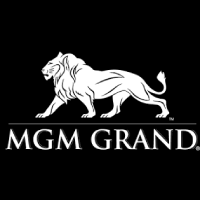





Effective and Efficient Las Vegas Festival Planning Ideas
Planning for a festival can be overwhelming and time-consuming. However, with the right strategies and ideas, you can make the most of your festival planning experience and ensure a successful event. This blog post will discuss effective and efficient festival planning ideas to help you plan a successful event while keeping your budget and timeline in check. From choosing the right venue to finding the right food vendors, we will go over all the essential planning elements you need to consider. So, if you want to make your festival a success, read on to find out how to do it!
Creating a Detailed Budget for Your Festival
The planning and execution of a festival can be a daunting task. Establish your target attendance numbers and determine how much money you will need to cover costs such as venue rental, food and beverage, security, and marketing. Create a detailed budget that accounts for all expenses and includes estimated tax fees. Make a list of the specific items you will need for your festival, such as tents, sound systems, marquees, etc. Plan your event schedule so that all necessary supplies and staff are available when needed. Communicate with local businesses to secure discounts on supplies and services as required. By following these steps, you can create a festival plan that is both effective and efficient.
Selecting the Right Location for Your Festival
Before planning a festival, you should consider the venue’s location and demographics. The venue should be accessible to attendees and be able to host both large tents and crowd-control barriers. It should also be large enough to accommodate stage sizes, food vendors, and other festival amenities. When choosing a venue, it’s essential to research the event’s logistics. This includes determining if there’s parking available, how long it takes to set up a festival, and how much security is needed. You should also consider venue fees and terms before booking a venue. By taking these steps, you can create an effective and efficient event for attendees.
Securing the Necessary Permits and Licenses
Obtain the necessary permits and licenses before hosting a festival. Make sure you have the correct insurance coverage. This will help cover any losses or damages during the event. Follow all local safety regulations. This will help ensure the event is conducted safely. Also, it will reduce any potential liability for your organization. Coordinate with local law enforcement to ensure a safe and successful festival. Ask law enforcement officials about any additional safety measures that would be helpful for your event, such as planning for traffic management or emergency personnel. Keep records of all communication and transactions related to your festival for future reference. This will allow you to track the event’s expenses and revenues accurately. Moreover, this documentation can be used in analyzing the effectiveness of your festival planning efforts.
Choosing the Right Food and Beverage Vendors
When planning a festival, food and beverage vendors are essential to the event. A music festival, food festival, or farmers’ market are all great examples of festivals where food and beverage vendors play an indispensable role. When planning a festival, it’s vital to consider the type of event you’re planning in terms of the food and beverages offered. It’s essential to consider factors such as budget, tastes, and venue size when deciding on a food or beverage vendor. This way, you can ensure your event is as enjoyable and memorable as possible. When choosing a food or beverage vendor for your event, it’s vital to consider factors such as budget, quality, experience, and branding. Many great options exist for attendees, from local vendors to global brands. Researching these options will help you make an informed decision and choose the best fit for your event.
Creating an Effective Advertising and Promotional Strategy
If you’re planning a festival, you’ll need to create a budget for your festival advertising and promotional expenses. It’s essential to plan your festival advertising and promotional strategy so that you don’t end up overspending or under-budgeting. To start, think through your festival goals and target audience. Which media will be most effective in reaching this audience? Which type of event marketing will work best? How can you generate social media buzz around your event? Once you answer these questions, you can use the budget to create a festival marketing plan. This plan should outline how you will market your event, including advertising and social media efforts. It should also include costs for ticket sales, event materials, venue rental fees, and other expenses. Creating a thoughtful marketing plan can ensure that your festival is successful and sustainable.
Developing an Engaging Lineup of Musical Acts
Effective festival planning starts with assembling an engaging lineup of musical acts. When choosing music for your festival, you must consider your target audience. What type of music do your attendees enjoy? What will make your event memorable and fun for them? You can find great music for festivals, from famous artists to up-and-coming talent. But don’t just rely on famous artists—include various genres and styles in your lineup to appeal to a wide range of attendees. This way, everyone at the festival will have something they love to listen to!
Establishing Safety Protocols and Procedures
To ensure the safety and well-being of festival attendees, festival organizers must have a safety plan in place. This should include creating a safety protocol with festival partners, such as event management companies and venue operators, to discuss and outline the steps required to ensure the safety of festival attendees. This includes planning for potential emergencies, such as natural disasters or accidents, and ensuring that staff members have the necessary training to handle them quickly and effectively. Organizations can also create safety guides that detail the proper festival safety practices and educate attendees on these practices. This helps attendees be aware of their surroundings and make informed decisions about their safety during the event. Organizing and following established safety protocols can help attendees enjoy their festivals safely and responsibly.
Utilizing Technology to Streamline Festival Planning
Technology has revolutionized how festival organizers plan and manage events. With the ability to access a global audience of music lovers, event planners can easily target specific music genres or styles for their event audience. This way, attendees will enjoy a wide range of music selections that fit their preferences. In addition to streaming live music performances, festival organizers can use social media platforms to promote upcoming events and connect with potential attendees. Using social media marketing tools, organizers can reach existing attendees and attract new fans who may have yet to learn about your festival. By using technology in conjunction with traditional festival planning tools, organizers can achieve high efficiency and accuracy when planning their events.
Implementing a Post-Festival Evaluation Process
A post-festival evaluation process is an essential part of festival planning. It helps you identify the strengths and weaknesses of the event and adjust future festivals accordingly. You can use this process to track festival attendance and revenue, determine which activities were most popular with festival-goers, and identify areas for improvement. This ensures that your next festival is as successful as the last one. Plus, it allows you to celebrate your successes and learn from your failures. Moreover, collecting attendees’ feedback after the event is always a good idea. This way, you can ensure that your festival is as enjoyable and engaging as possible for all attendees.
Our
SERVICES
Menu
Conclusion
Festival planning is an exciting process involving several stages, sharing ideas and inspiration to create a budget, and designing a festival logo. Now that you know how to plan the perfect festival, we’ve got one more thing for you. Take inspiration from some of the most successful music festivals worldwide and implement their planning strategies for your event. The next generation will thank you if you make their festival event an unforgettable success story. At Snap Events in Las Vegas, NV, we’re here to help. Our festival event planner team is ready and waiting to help you plan your next event with precision and attention to detail. Contact us at 702-530-1074 to learn more about our snap events planning services!
Let’s get moving.
SNAP EVENTS is ready to serve you. We’ll do all the work and YOU take all the credit. We are your boots on the ground in Las Vegas and around the world.
- 101 Convention Center Drive Las Vegas, NV 89109
SPECIAL OFFER
Last Chance, Fill Out Our Pricing Wizard Now for an Instant Quote!
Why Wait on Slow, In-Experienced Event Coordinators. Save Time and Money. Get Your Quote Today!

- Home
- About Us
- Contact Us
- Privacy Policy
- Terms of Service